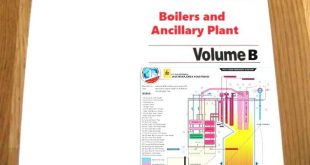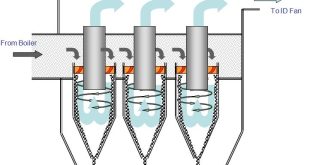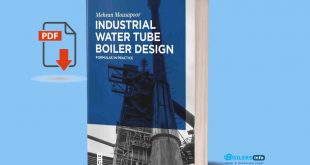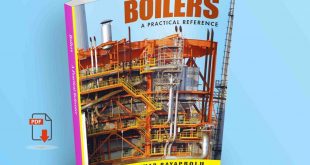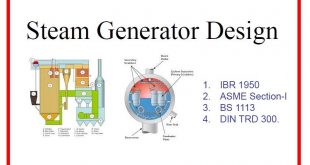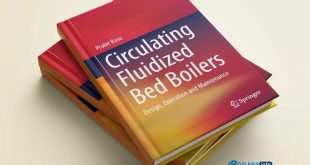Boiler Tube Failure Mechanisms: Causes, Prevention, and Solutions
Boiler tube failures are among the most common and costly issues encountered in industrial boilers. Understanding their mechanisms is critical to maintaining boiler efficiency, ensuring safety, and avoiding unplanned downtime. This article explores the primary causes, types, and preventative measures related to boiler tube failure mechanisms.
What Are Boiler Tube Failures?
Boiler tubes are critical components that carry water, steam, or flue gases in power plants and industrial boilers. A failure occurs when these tubes degrade or rupture due to mechanical, thermal, or chemical stress. Tube failures can lead to boiler shutdowns, loss of efficiency, and in severe cases, catastrophic damage.
Common Boiler Tube Failure Mechanisms
1. Overheating
Overheating occurs when the tube metal temperature exceeds its design limits, often due to:
- Poor circulation of cooling water or steam.
- Fouling or scaling on the tube’s internal surfaces.
- Insufficient heat transfer due to deposits.
Prevention:
- Regular cleaning to remove scale or deposits.
- Monitoring heat distribution and flow conditions.
- Ensuring proper water chemistry.
2. Corrosion
Corrosion is the chemical degradation of tube material, and it can be categorized into:
- External Corrosion: Caused by exposure to flue gases or combustion by-products.
- Internal Corrosion: Caused by improper water chemistry, dissolved oxygen, or low pH levels.
Prevention:
- Implementing a robust water treatment program.
- Monitoring oxygen levels and pH in boiler feedwater.
- Using corrosion-resistant materials or coatings.
3. Erosion
Erosion occurs when particles in steam or flue gases abrade the tube surface, leading to thinning and eventual rupture. It’s common in areas with high-velocity flows or where ash impinges on tube surfaces.
Prevention:
- Optimizing boiler design to minimize high-velocity zones.
- Installing wear-resistant coatings or shields.
- Regular inspection of erosion-prone areas.
4. Stress Corrosion Cracking (SCC)
SCC is the result of combined tensile stress and a corrosive environment, often in high-temperature areas.
Prevention:
- Reducing residual stresses during fabrication or repair.
- Maintaining water chemistry to eliminate corrosive agents.
- Using alloys resistant to stress corrosion.
5. Fatigue Failures
Repeated thermal or mechanical cycling can lead to cracks and material fatigue in boiler tubes.
Prevention:
- Reducing rapid temperature fluctuations during operation.
- Conducting regular stress analysis and inspections.
- Using high-strength materials for high-stress areas.
6. Caustic Embrittlement
This failure occurs when concentrated alkaline solutions accumulate in the tube metal, leading to brittle cracks.
Prevention:
- Proper control of boiler water alkalinity.
- Avoiding localized concentrations of chemicals.
- Regular blowdown procedures.
Signs of Boiler Tube Failure
- Sudden pressure drops.
- Leakage or steam escaping from tubes.
- Visible deformation, such as bulging or cracking.
- Abnormal noises or vibrations.
Best Practices for Preventing Boiler Tube Failures
- Routine Inspections
Conduct regular visual and non-destructive testing (NDT) methods like ultrasonic testing, radiography, or dye penetrant inspections. - Proper Maintenance
Maintain optimal boiler performance by cleaning tubes, maintaining water chemistry, and inspecting for wear and tear. - Water Treatment
Ensure that feedwater is treated to minimize scaling, fouling, and corrosion. - Monitoring Systems
Use advanced monitoring systems to track temperature, pressure, and flow rates to detect anomalies early. - Operator Training
Train boiler operators to recognize signs of tube stress and operate boilers within their design parameters.
Conclusion
Boiler tube failures can significantly disrupt operations and increase maintenance costs, but they are preventable. By understanding failure mechanisms such as overheating, corrosion, erosion, and fatigue, you can implement proactive measures to extend the life of boiler tubes. Regular inspections, water treatment, and proper maintenance are key to ensuring safe and efficient boiler operation.
If you’re experiencing boiler tube issues or want to optimize your system’s performance, consult a professional boiler engineer or inspector today.
 Boilersinfo Boiler and Mechanical Power Digital Library
Boilersinfo Boiler and Mechanical Power Digital Library

